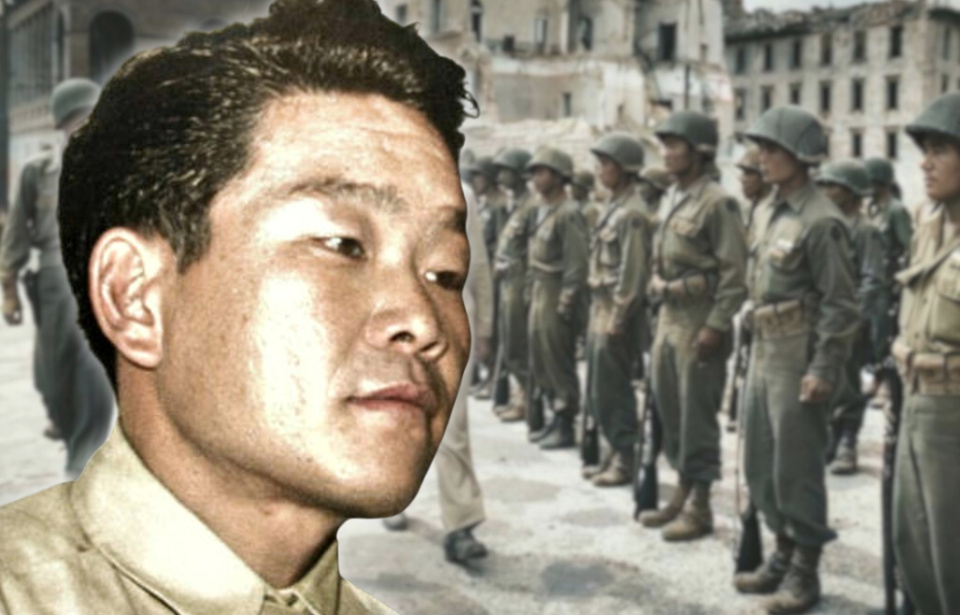During the Italian Campaign in World War II, German soldiers faced a sight they’d never expected: Japanese-American soldiers. These men were members of the 100th Infantry Battalion, comprised entirely of Nisei (children of Japanese Immigrants) troops. What makes this story all the more amazing is knowing how these soldiers and their families were treated by a scared and hateful populace at home.
Their families, friends and neighbors were imprisoned by the US government over suspicions of seditious or treasonous behavior, yet the men of the 100th were proud patriots and wanted to prove to the populace that one’s heritage doesn’t always dictate their nationality. The battalion fought bravely throughout the Italian Campaign and earned the respect of their peers and enemies, but when they made first contact with the Germans, one man showed his courage above the rest.
Shizuya Hayashi was drafted into the US Army
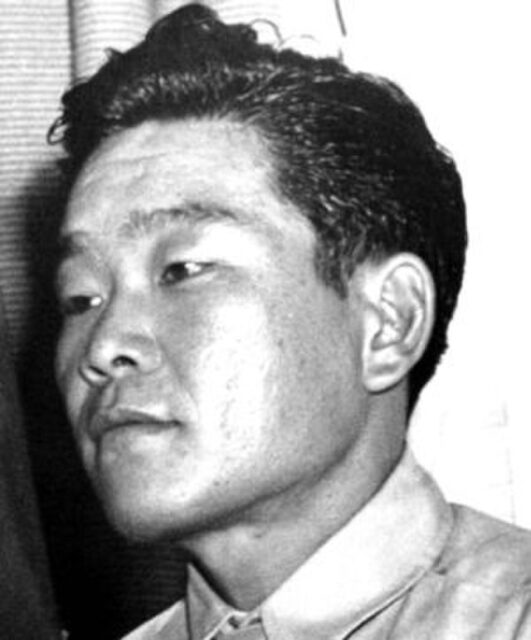
Shizuya Hayashi was born on November 28, 1917, in Hawaii. The son of poor Japanese immigrants, he grew up on the Waialua sugar plantation. From 14-22 years old, he worked on the farm, helping to repair its equipment, but, at 22, he ran away to Ford Island, where he found employment with his valuable mechanical knowledge.
Hayashi’s newfound freedom came to an end in March 1941, when he was drafted into the US Army. He was a member of the 65th Engineers until June 1942, when he, along with other Japanese-American soldiers, were sent to Oakland, California. The 100th Infantry Battalion had just been established, providing a way for Japanese Americans to prove their patriotism – and prove it they did, excelling in nearly every aspect of their training.
Participating in the Italian Campaign
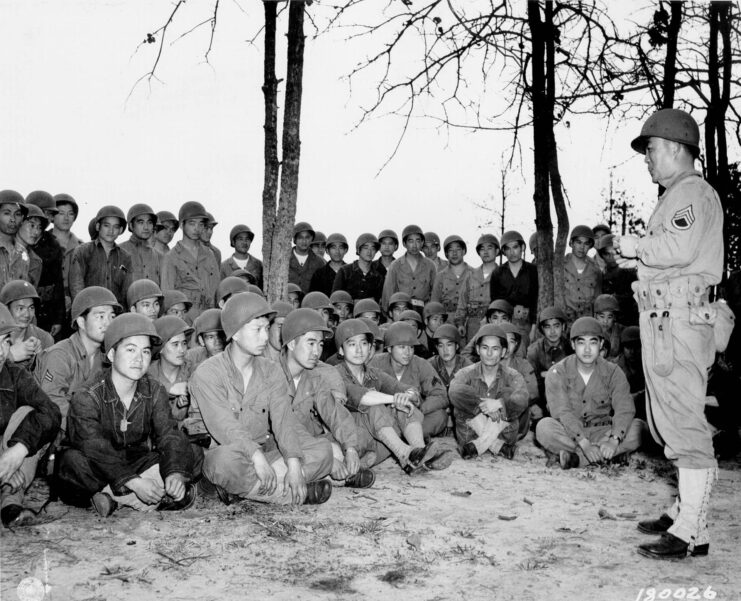
On August 11, 1943, the 100th Infantry Battalion set sail for Oran, North Africa. From there, they traveled again, this time to their final destination: Axis-controlled Italy.
By November 29, the 100th had made first contact with the enemy. They’d marched inland from the initial landing site at Salerno and had trudged forward, marching mile after mile, defeating the enemy wherever they encountered them. Shizuya Hayashi had a nearly endless stream of close shaves as they made their advance, from grenades exploding just out of range, to duds landing next to him in a foxhole.
But luck wasn’t all that earned him the Medal of Honor.
Shizuya Hayashi was awarded the Medal of Honor
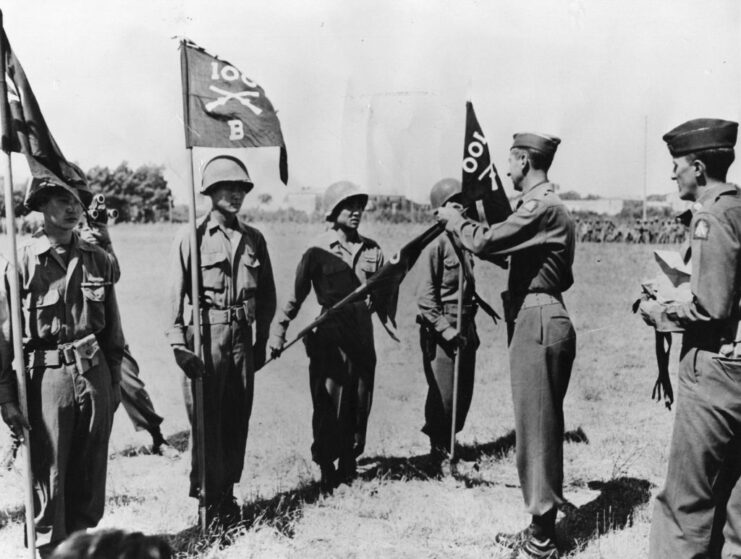
In his first day of combat, Shizuya Hayashi and the rest of the 100th Infantry Battalion were advancing toward an enemy position on high ground. The Germans were sending everything they had against the Japanese-American men, lobbing grenades and firing terrifyingly accurate rifle and machine gun fire.
While the soldiers around him hugged the ground, hoping to avoid this deadly hail of metal, Hayashi rose and charged forward with his Browning automatic rifle. He captured the nearest machine gun nest, killing seven men outright and two more as they fled from the attack.
The rest of Hayashi’s unit advanced. They took the hill, only to find their new spot was even less safe. The Germans had set up an anti-aircraft position, which began spraying shells at them. However, Hayashi wasn’t about to give up the fight and returned fire, despite being totally outgunned. By some miraculous turn of fate, this brash attack worked. Hayashi took out nine enemy fighters and, again charging forward, captured four prisoners.
The rest of the Germans in the immediate area fled, fearing they’d meet the same fate. Hayashi and the rest of the 100th advanced once more, securing the area. For his heroism that day, Hayashi was awarded the Distinguished Service Cross, but, in recognition of the true heroism he exhibited, this was upgraded to a Medal of Honor by US President Bill Clinton in 2000.
What did Shizuya Hayashi get up to after World War II?
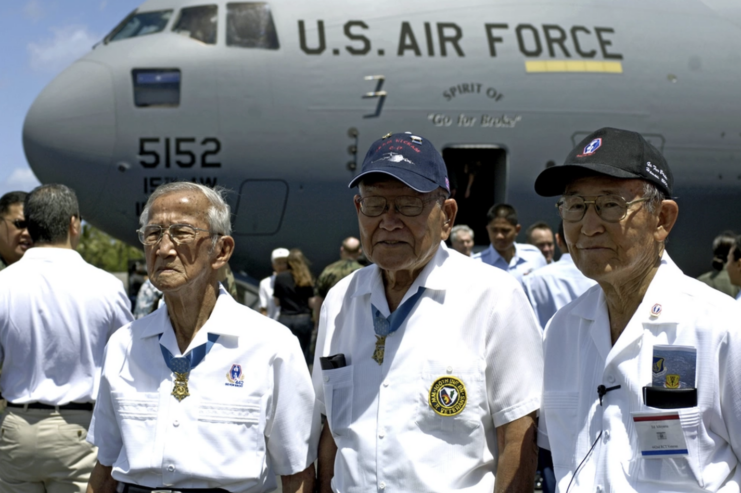
After the Second World War, Shizuya Hayashi returned to Hawaii. After receiving the Medal of Honor, he began speaking to elementary and high school students about his experiences with the 100th Infantry Battalion, making sure their story would forever be remembered.
Hayashi passed away on March 12, 2008, at the age of 90.
More from us: Charles Lightoller: The Titanic Second Officer Who Helped Evacuate Over 120 Men at Dunkirk
Want War History Online‘s content sent directly to your inbox? Sign up for our newsletter here!
During his presidency, Barack Obama presented the 100th Infantry Battalion with the Congressional Gold Medal, in recognition of their tremendous bravery and sacrifice in World War II.
